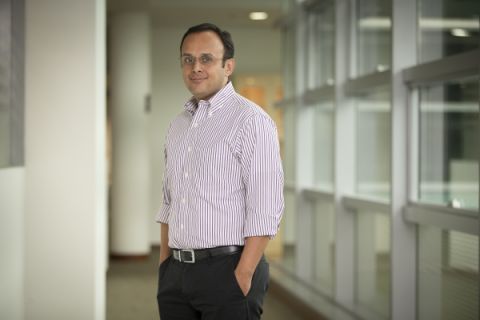By Ng Yi-Di
SMU Office of Research & Tech Transfer– Singapore is getting older, and its citizens may now be living longer than ever, but a longer lifespan is only one part of the equation of ageing well. Healthspan, the period of time that one remains in good health, matters too.
As a result, the government has put a stronger focus on ageing-in-place and preventive healthcare policies such as the recently announced HealthierSG initiative. To guide such policies, SMU’s Centre for Research on Successful Ageing (ROSA) aims to conduct collaborative and interdisciplinary research on issues relating to the well-being of ageing populations supplemented by the Centre’s Singapore Life Panel® (SLP) data.
At the third ROSA Policy Roundtable, held online on 18 April 2022, ROSA researchers presented their research findings as well as policy discussions aimed at increasing the healthspan of Singapore’s older population. The roundtable was supported by The Ngee Ann Kongsi philanthropic organisation and the Ministry of Education, Singapore.
Getting to the doctor
Preventive healthcare interventions and policies are contingent upon individuals accessing healthcare services. With this in mind, Mr Micah Tan, Research Associate at ROSA, and Associate Professor Vincent Chua of the National University of Singapore (NUS), sought to investigate how social factors such as social networks and medicine usage patterns, and physical factors like the proximity of clinics could jointly influence healthcare utilisation among middle-aged and older adults in Singapore.
“Many studies have looked at how these factors may separately influence healthcare utilisation, but few have actually sought to concurrently examine the influence of both factors,” said Mr Tan. “The primary purpose of our research was to do just that.”
Using SLP data collected from over 4,000 HDB public housing middle-aged and older adult residents, the researchers found that social networks can play a compensatory role in encouraging residents to visit a healthcare clinic when needed where healthcare accessibility is low. Mr Tan explained that people in the community can encourage older adults to seek medical care when needed, whether through casual conversations or by offering to physically accompany them to the healthcare facility.
From their findings, the researchers suggest that social interventions such as buddy programmes would be helpful in encouraging healthcare utilisation, especially in neighbourhoods with low physical access to health care, and where older adults tend to be more isolated.
“Our study underscores the barrier to health care accessibility and utilisation among older adults who live alone,” said Associate Professor Chua. “They need to be connected in order to be directed to available healthcare services, especially if the amenity structure is not as comprehensive.”
Evidence for education
Besides accessibility, health education also plays an important role in improving the healthspan of older adults and enhancing the effect of preventive strategies against chronic diseases, as research from Dr Vicky Mengqi Qin, a ROSA Research Fellow, and Associate Professor Kim Seonghoon, Deputy Director of ROSA showed.
To determine what sort of education should be provided for older adults to reduce the risk of chronic diseases like diabetes, Dr Qin and Associate Professor Kim investigated the impact of an obesity education intervention on older adults’ self-perception of their body weight and health behaviour. The intervention was administered to older adults in Singapore using a randomised control trial method and the results compared to earlier SLP data.
“While lifestyle modifications can be effective in maintaining a healthy weight, a correct understanding of the importance of healthy weight is also crucial for healthy lifestyles and better quality of life,” said Dr Qin.
The researchers also found that older adults in Singapore tended to hold misperceptions of their own body mass index, with more than 40 percent of participants perceiving themselves to be overweight.
“The policy implication is that older Singaporeans may not always have the right perception about their body weight, which may hinder their adherence to scientific suggestions on weight management and healthy behaviour,” said Dr Qin, who recommended frequent targeted public education strategies.
Encouragingly, the researchers demonstrated immediate effect through a one-month health education intervention, with recipients reporting better life satisfaction.
What makes for a satisfying life
Given that physical and social factors can impact both physical and mental health, Dr Tan Shin Bin, a Postdoctoral Fellow at the NUS Lee Kuan Yew School of Public Policy (LKYSPP), is analysing how Silver Zones, dedicated locations with road safety features designed to protect senior pedestrians, affect the social participation and satisfaction of older adults.
“In theory, pedestrian-friendly neighbourhoods should encourage greater social interaction, community engagement and social inclusion,” said Dr Tan.
However, while her preliminary cross-sectional analyses revealed that an increase in the number of Silver Zones nearby was associated with older adults leaving their homes more frequently, it was not associated with higher levels of social participation or satisfaction.
“Perhaps the reason we're not seeing significant associations with some of the more downstream measures of social participation is that being able to leave home is not sufficient to affect these measures,” explained Dr Tan.
Moving forward, Dr Tan aims to develop longitudinal analyses to tease out these differences and unpack the possible effect of Silver Zones on physical and mental health.
Similarly interested in mental health is Mr Keh Jun Sheng, a ROSA scholar and PhD Candidate in Psychology at SMU. “When we think about being healthy, we often default to thinking about physical health. However, health involves more than just physical health,” said Mr Keh. “We are talking about a holistic concept of health, which involves both physical and mental health aspects.”
With Associate Professor William Tov, also Deputy Director of ROSA, Mr Keh described their research examining how physical or mental health satisfaction relates to demographic variables and an overall sense of subjective health in older Singaporeans.
From their preliminary results, the researchers discovered that physical health satisfaction tends to decline faster than mental health satisfaction. However, when older adults were asked to assess their own health, they gave more weight to physical health over mental health.
“Even though mental health satisfaction remains fairly stable, there is a risk that older adults may overlook their mental health issues as they focus more on physical health issues,” explained Mr Keh, adding that both physical and mental health satisfaction are important for daily functioning.
Mr Keh proposed that a holistic healthcare policy should consider raising the awareness of the role mental health plays in subjective health evaluations among older adults. Likewise, healthspan should be thought of in a holistic manner, and policies for successful ageing should consider mental health and social well-being in addition to physical health.
“This is exactly what ROSA wants to achieve: to pool shared resources and efforts together to promote the well-being of older adults,” said Professor Paulin Straughan, Director of ROSA.
Back to Research@SMU May 2022 Issue
See More News
Want to see more of SMU Research?
Sign up for Research@SMU e-newslettter to know more about our research and research-related events!
If you would like to remove yourself from all our mailing list, please visit https://eservices.smu.edu.sg/internet/DNC/Default.aspx

